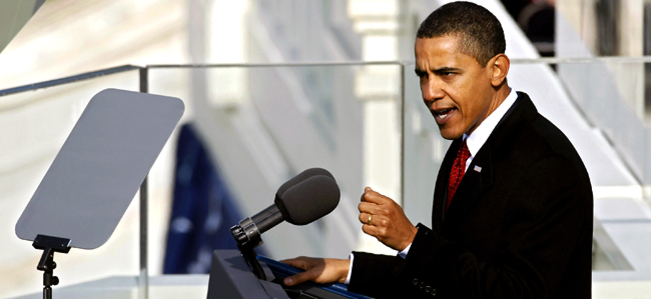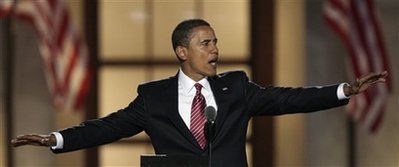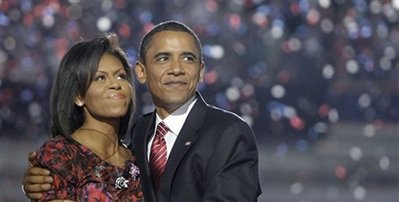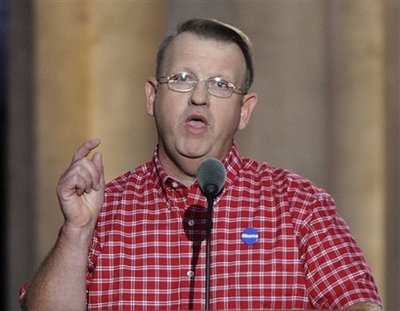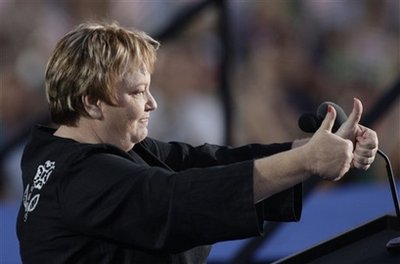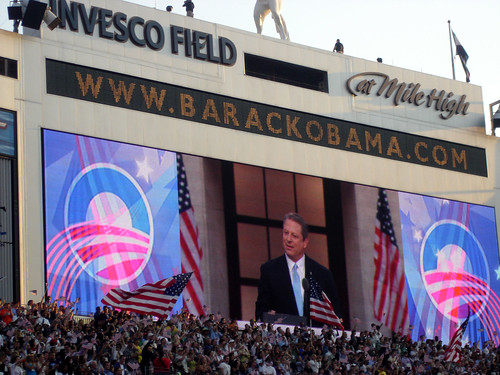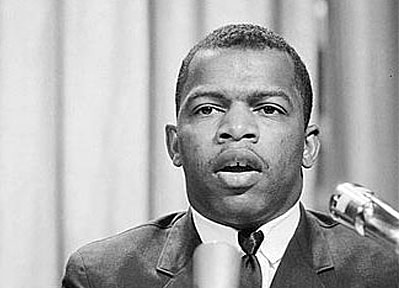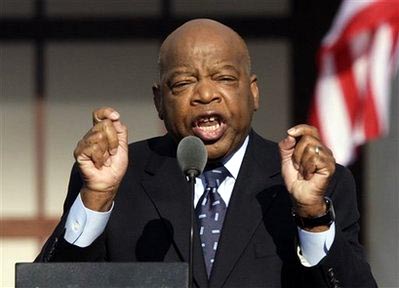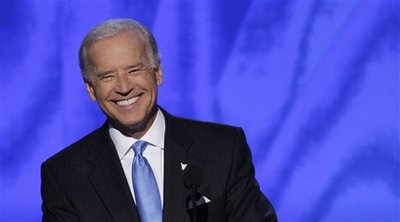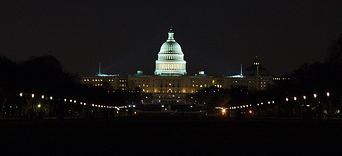
My job, in case y’all were wondering: I’m going back into full-time political speechwriting. More specifically, I will be working on the Hill, House side, as a “foot-soldier in the Obama revolution,” to borrow a frequent McCainism. And I hope and expect I’ll be getting a first-hand look at how the legislative sausage is made from the ground floor.
If you’re curious to know who exactly I’m working for, feel free to drop me an e-mail sometime. Why so coy about it? Don’t worry — it’s a Democrat! Still, after close to ten years of posting here at GitM, this feels like a good time to establish some modicum of healthy distance between my life and blog. If anybody’s still reading from my last DC tenure way back when, I acknowledged openly back then that I worked at the FCC, and it’s not like this became the go-to place for inside scuttlebutt on the AOL-TW merger or anything. (Nor, during my Carville stint, did I post about any work goings-on in this space either. I may not have been blogging per se in ’97 and ’98, but I was nevertheless writing here pretty often.)
But, in those days, the Internet was more of a Wild West frontier town, blogging was a relatively new fad — back then, it wasn’t “What do the bloggers think?!” but “Why are you bothering to post that stuff online?!” — and I think it was easier to get away with more. Now, I’m under no illusions that GitM has or ever will enjoy a large readership — In fact, in terms of visitors this site peaked probably five or six years ago. And, from the beginning, I’ve always been conscious that this is a public forum, and have tried to be relatively temperate in my posts accordingly. I think the archives here reflect pretty well on me, all in all, and I’m not really concerned about hiding anything. Even if somebody did make the effort for some ridiculous, unlikely reason, the worst headline a right-wing blogger type might come up with after perusing the past decade of posts is “Democratic Aide is Overgrown Boy, Won’t Shut Up about Lord of the Rings.“
But, obviously, I have been a partisan here over the years. And so, by establishing a little more distance between my blogging and working life, I hope it’ll emphasize the fact that both the ten years of posts already here, and the posts to come, reflect on me and me alone. As far as GitM goes in the future, I won’t be posting on my day-to-day business as always, and, as always, I’ll be erring far on the side of discretion in my choice of topics. Still, unless Congress suddenly takes a decisive stance on movie trailers, fanboy-to-film properties, random science and culture articles, and the occasional items of historical or progressive interest, I’m sure the usual content here won’t shift all that much.
Phew! Now that all the caveats are out of the way, let me say that I’m very happy to be both rejoining the ranks of the employed and returning to political speechwriting. (Yes, some aspects of DC life do rankle, but I have a lot of friends there, and it’s definitely a fun, interesting town.) To be honest, this is a career move I’ve been considering since I first set off for grad school in 2001, so my returning to the political fold on the other end of the PhD process (give or take a few months) feels like a natural and very satisfying progression to me. (The Ivory Tower isn’t losing much anyway, particularly given that the existence of academic jobs in this recession economy, as many poor souls out there can tell you, is proving to be almost entirely theoretical. Besides, over the long term, I don’t really see the academic and speechwriting paths as mutually exclusive anyway. And never say never — with any luck, I have a ways to go yet before the final bell tolls.)
At any rate, I’m off for a hopefully MacArthuresque return to DC. I expect updates here will be more sparse than usual over the next few weeks as I make the move and settle in. But, I’ll be back, in due course. Until then, a very happy July 4th to you and yours.

